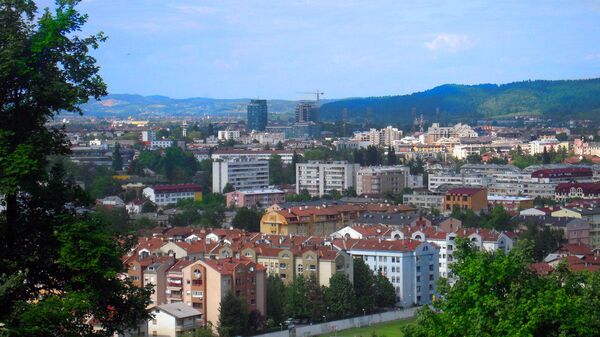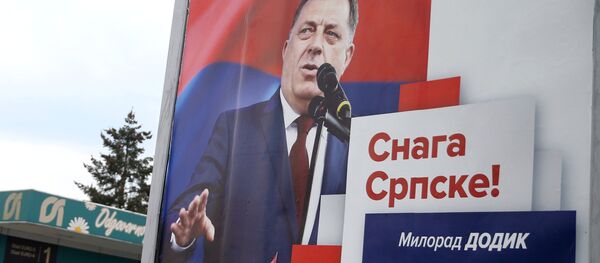Dodik commented on an incident that took place last week in the region’s parliament. A group of opposition lawmakers blocked the parliamentary session from being held. The president suggested that the possible consequent "turmoil in the parliament" risks undermining the expected decision.
"We are on the verge of a serious step and I suppose some forces were involved to prompt the opposition to try to prevent this," Dodik said in an exclusive interview with Sputnik Serbia.
The Serbian-majority Republika Srpska region is one of two largely autonomous entities constituting Bosnia and Herzegovina. The other one is the Federation of Bosnia and Herzegovina dominated by Bosniaks and Croats – as well as the Brcko district. The union state is governed by a three-member presidency.
The planned decision on a neutral status is expected to follow a similar move by Serbia back in 2007. At the time, the Serbian Parliament adopted a resolution to protect country’s territorial integrity and constitutional order, including declaring a neutral status towards the existing military alliances. The final decision on the issue is reserved to a referendum.
"We took the Serbia’s decision and we will rewrite it. As a result, RS and Serbia will have a common political position on joining military blocs," Dodik said.
"They know that Serbs in Republika Srpska are against NATO. Now it’s time to say, ‘why would we need the alliance that dropped depleted uranium bombs on us in 1995?’" he underscored.
Dodik emphasized that RS will follow Serbia’s policy towards NATO and will continue to stand against any attempts to drag the country into the military bloc.
"NATO declares that a membership cannot be imposed, but in fact its tentacles are always ready to wrap around some new country and drag it in. We’re now witnessing the same regarding military property," the president concluded.
In a separate interview with Sputnik in August, Dodik said that Republika Srpska was considering a referendum on Bosnia and Herzegovina’s membership of NATO. According to him, a vote against joining the bloc would send a clear signal that the country should not join NATO in the currently "polarized world, in which joining one side would mean losing Russia and other friends."



